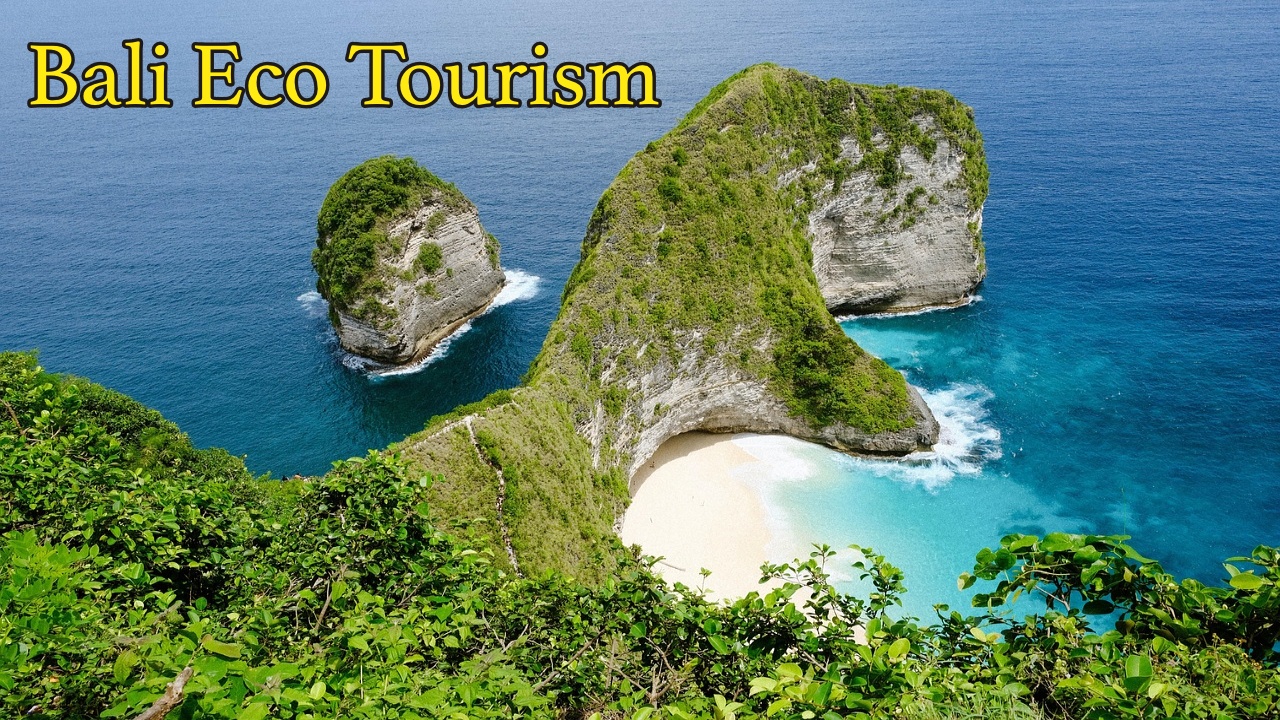Bali is a paradise for travelers, offering lush jungles, pristine beaches, and a vibrant cultural scene. However, the rise in tourism has also brought environmental challenges, making eco-conscious travel more important than ever. From staying in sustainable resorts to dining at organic restaurants and participating in conservation programs, there are plenty of ways to enjoy Bali while protecting its natural beauty.
Staying connected is essential for eco-conscious travelers. With an eSIM for Bali, visitors can navigate eco-tourism sites, book sustainable tours, and use digital payment options—all while avoiding the plastic waste from traditional SIM cards. Whether you’re exploring Bali’s rainforests or coral reefs, responsible travel ensures future generations can continue to enjoy the island’s wonders.
Eco-Friendly Stays in Bali
Choosing a sustainable hotel or eco-lodge is one of the best ways to support responsible tourism.
Bali offers a variety of eco-friendly stays that focus on renewable energy, waste reduction, and responsible tourism initiatives. In Ubud, Bambu Indah combines traditional Javanese architecture with permaculture farming, while Fivelements Retreat focuses on holistic wellness and plant-based dining. For budget travelers, eco-friendly hostels like The Farm Hostel in Canggu provide sustainable stays without compromising comfort.
These accommodations use solar energy, rainwater harvesting, and zero-waste principles to reduce their carbon footprint. Booking your stay through eco-conscious travel apps and using an eSIM ensures a smooth, digital, and sustainable reservation process.
Best Nature-Based Activities for Eco-Tourists
Bali is a haven for nature lovers, thanks to its rich biodiversity, stunning landscapes, and thriving marine ecosystems.
Hiking up Mount Batur at sunrise is an unforgettable experience, offering breathtaking views without the crowds. Tegalalang Rice Terraces in Ubud showcase centuries-old Balinese farming traditions, where travelers can learn about sustainable agriculture. For those interested in marine life, snorkeling in Amed or Menjangan Island provides a chance to see healthy coral reefs and diverse marine species.
Visiting West Bali National Park, a protected area home to rare wildlife like the Bali Starling, is another way to support conservation efforts. With an eSIM, eco-travelers can access trail maps, conservation guides, and live weather updates while exploring these incredible sites.
Sustainable Restaurants & Organic Cafés
Supporting eco-conscious dining is a great way to reduce travel’s environmental impact. Bali’s food scene offers organic, plant-based, and locally sourced options that promote sustainability.
Best Eco-Conscious Eateries in Bali
- Locavore (Ubud) – A fine-dining experience with locally sourced, seasonal ingredients
- Zest Ubud – A vibrant plant-based café with a focus on sustainable farming
- The Shady Shack (Canggu) – Serves fresh vegetarian meals in a green, eco-friendly space
- KAFE (Ubud) – Promotes organic ingredients and ethical sourcing
Many restaurants use biodegradable packaging, composting programs, and ethical supply chains. With an eSIM, travelers can easily search for sustainable dining options, make reservations, and use digital payment apps to minimize cash transactions.
Eco-Tourism Apps for a Greener Bali Experience
Technology is key to responsible tourism, offering tools to reduce waste, support ethical businesses, and find sustainable experiences.
Must-Have Apps for Eco-Travelers
- Gojek & Grab – Ride-hailing apps offering eco-friendly transport options
- Too Good To Go – Reduces food waste by selling surplus meals at lower prices
- HappyCow – Helps find vegan and sustainable restaurants
- RefillMyBottle – Maps out free water refill stations to reduce plastic bottle use
Using an eSIM, travelers can download these apps, book eco-friendly tours, and navigate the island efficiently without relying on disposable maps or printed tickets.
Do’s and Don’ts for Responsible Tourism in Bali
Do’s
- Bring a reusable water bottle to cut down on plastic waste
- Support local artisans and sustainable businesses
- Participate in beach clean-ups and conservation initiatives
- Opt for eco-friendly activities like hiking, cycling, and snorkeling
- Respect wildlife and marine ecosystems by choosing ethical tours
Don’ts
- Avoid single-use plastics, including plastic bags and straws
- Don’t leave litter on beaches, hiking trails, or sacred temples
- Avoid buying souvenirs made from endangered species, coral, or shells
- Don’t engage in unethical wildlife tourism like elephant rides or photo ops with captive animals
- Refrain from using harmful sunscreens—opt for reef-safe sunscreen to protect marine life
Why is a Digital SIM for Bali Essential for Eco-Travelers?
An eSIM enhances eco-conscious travel by providing a waste-free alternative to traditional SIM cards.
- Instant Activation – Set up before arrival to avoid physical SIM waste
- Reliable Navigation – Access maps, eco-guides, and transport apps without paper tickets
- Seamless Digital Payments – Reduce cash use by paying through e-wallets and booking apps
- Live Eco-Tourism Updates – Stay informed on sustainable events and conservation programs
By switching to an eSIM, travelers support a more responsible, digital-first approach to tourism.
Final Thoughts
Bali’s eco-tourism movement is growing, offering travelers more ways to explore the island while preserving its natural beauty. From staying at sustainable lodges and eating at farm-to-table restaurants to engaging in ethical wildlife experiences, there are many ways to travel responsibly.
An eSIM for Bali allows visitors to reduce plastic waste, book eco-conscious experiences, and stay connected without hassle. By making mindful choices, travelers can enjoy Bali while contributing to its environmental protection, ensuring the island’s beauty remains intact for future generations.
